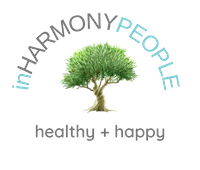Corene McKinney
While we are just beginning to comprehend in most Western cultures the incredible healing benefits of yoga, the yogis of India have been experiencing the therapeutic mind and body benefits of this ancient practice for thousands of years. The word yoga was first mentioned in some of the oldest and most revered texts, the Rig Veda, approximately five thousand years ago!
Each posture was designed to support overall physical and mental health. These postures can be utilized to relieve a range of conditions including back and joint pain, arthritis, insomnia, anxiety, depression, digestive diseases and countless other health risk factors. It’s a perfect system of preventative care. A growing number of health care practitioners in the United States and Europe are turning to this ancient practice for its healing benefits in an effort to provide reprieve for their patient’s symptoms.
Yoga can help reduce the symptoms of your anxiety and depression, chronic pain and so much more. You can learn to increase your productivity, improve your balance and flexibility and relax, all while advancing your physical and mental capabilities.
In modern society, we can have almost anything we want on a whim – the world is truly at our fingertips. However, in my experience, there is nothing more worthwhile than overcoming a challenge. Unlike popping a quick pill, the yogic lifestyle is a discipline that takes sincere dedication and the courage to make effective changes in your daily life. It takes consistent practice to see results and to build the right habits for you, but the results are beyond rewarding.
There are countless practical applications of this ancient practice, and I hope to see more individuals creating a lifestyle they love by incorporating the lessons of yoga with a more fluid approach. I would also encourage employers to include yoga in their corporate wellness plans and consider bringing yogis onboard as mindset coaches and as resources to their employees through times of transition and high stress.








